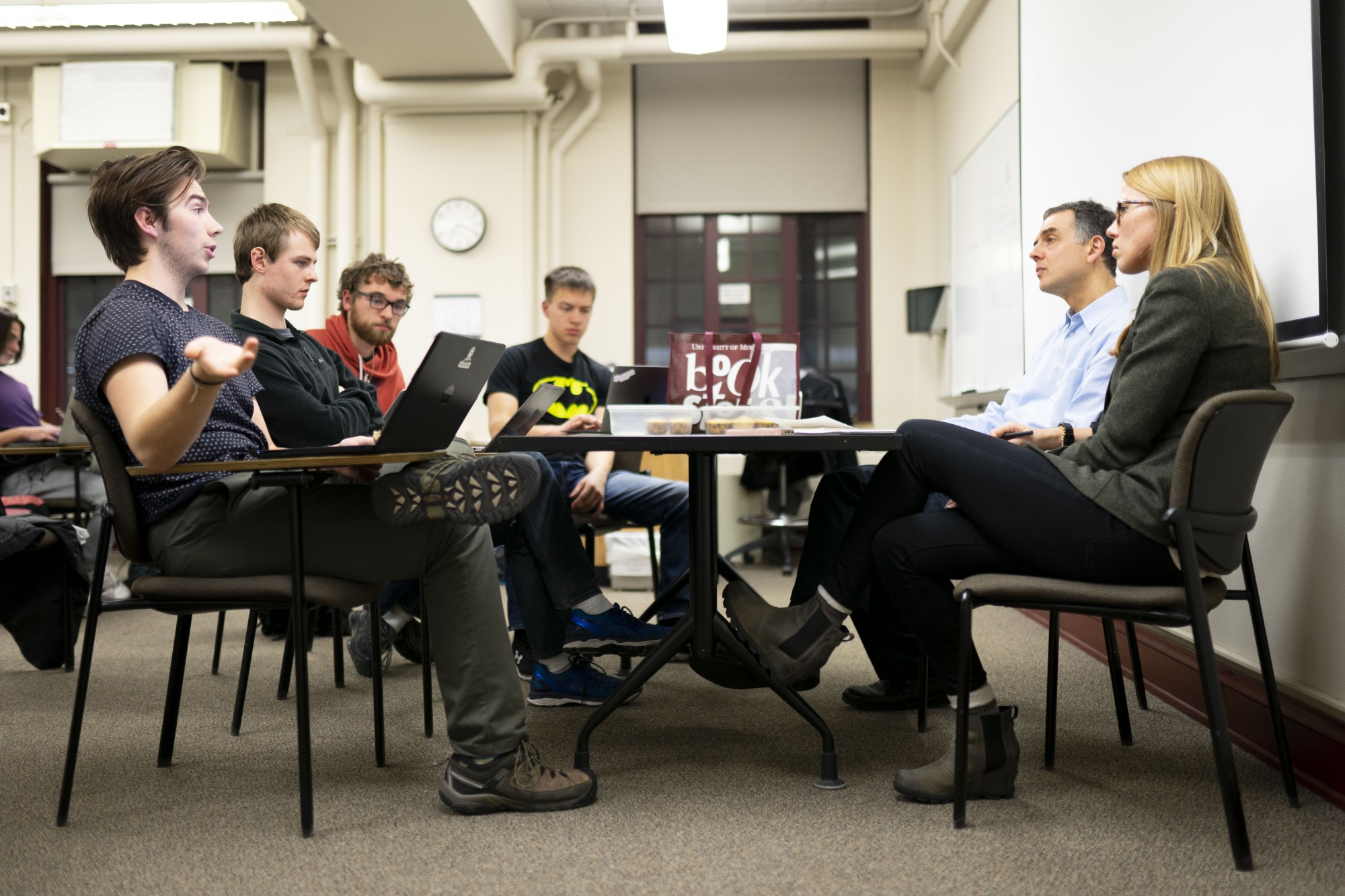A University of Minnesota professor is working against political polarization using a course called ‘Science Court’ that examines a controversial issue through a scientific lens.
Ellad Tadmor teaches in the Department of Aerospace Engineering and Mechanics, but has a passion for encouraging discussion about controversial topics. For the past 15 years, he has looked into the idea of creating a citizens court, an instrument for educating the public by peer research and decision making. He decided to implement this idea in a University course last year.
This semester, the course focuses on nuclear energy. Students are divided into a legal, science and media teams, which each have different tasks that culminate in a mock trial at the end of the semester.
Here, ‘jurors’ from different communities in Minnesota come to a conclusion about the topic based on the scientific evidence and legal arguments presented by the students.
Tadmor grew up moving back and forth between New Jersey and Israel, which helped teach him to consider different points of view, he said.
”It gives you a more global perspective on things. You’re not quite as rooted as you are in one particular culture as opposed to another,” he said.
Fourth-year student Grace O’Neil said she took Science Court in hopes that it could help her develop skills on having conversations with people who disagree with her views.
“I really thought it would be a great class to learn how to be central and learn how to kind of have those tough conversations that people don’t want to have,” she said.
Tadmor decided to move to Minnesota after coming here on sabbatical from Technion, the Israel Institute of Technology. He has been at the University for 14 years.
Andrew Rockway is the program director of the Jefferson Center, a Minnesota-based organization that has been a leader in citizens juries in the U.S. He said they are similar to the idea of a criminal court, but instead with discussion between peers that come to an ultimate recommendation on a policy or issue.
This creates a space where information can be found outside of the biases found in the media and ballot initiatives, Tadmor said.
“We think about it as ‘how are issues being framed and discussed? Are they connecting and resonating with the lived experiences of various communities?’” Rockway said.
The decisions and recommendations made by these juries are used by organizations to figure out how to address and move forward on political issues, Rockway said.
Recent elections highlighted the need for this kind of project, Tadmor said, when facts themselves were beginning to be questioned. He took a semester off of teaching to flesh out how Science Court could operate as a course.
Tadmor said he hopes implementing this project in a University setting can disseminate knowledge to outside communities, which sometimes are not trusting of universities.
“This is really a vehicle to address issues that people are worried about, concerned about, and to get the knowledge that we have here, out there,” he said.
Third-year student Sarah Whiteside said she is enjoying participating in a course that is still developing.
“It’s cool to see a class that’s kind of in formation and not so much complete … you also get to help form and shape it as it grows,” she said.
One of the changes to the course this year, is that the ‘pro’ and ‘con’ legal teams are now presenting more developed, complex arguments. This helps to dispel the idea that there are only ‘yes’ or ‘no’ answers to problems, which feeds polarization, Tadmor said.
First-year student Mandy Billups said she thinks the course has room for improvement, but that it has potential to be something powerful.
“It’s still relatively new but I think in the future, the better it gets, it’s just going to get better every single year. It could go on to make a difference, I think,” she said.
















